Are you looking to craft the perfect recommendation letter for a veterinary technician? Writing a compelling recommendation can truly make a difference in showcasing the skills and dedication of a veterinary technician. In this article, we'll explore key elements and templates that highlight their expertise in animal care and support within a veterinary practice. So, if you want to learn how to create a standout letter, read on!

Professional experience and skills
Veterinary technicians play a vital role in animal healthcare, assisting veterinarians in various tasks and ensuring patient well-being. With experience working in busy veterinary clinics like the Pet Care Center of Springfield, they gain hands-on expertise in administering medications (both oral and injectable forms), performing diagnostic tests, and assisting in surgical procedures. Proficiency in using medical equipment such as ultrasound machines, anesthetic machines, and digital radiography tools enhances their capability to provide high-quality care. Furthermore, strong interpersonal skills facilitate effective communication with pet owners, educating them about pet health and treatment options. Continuous professional development through certifications in areas like emergency care or anesthesia reflects a commitment to advancing knowledge and adapting to the evolving demands of veterinary medicine.
Compassion and empathy for animals
A skilled veterinary technician exhibits exceptional compassion and empathy for animals, demonstrated in various clinical settings such as animal hospitals and emergency care facilities. These professionals often work with diverse species, including domestic cats and dogs, as well as exotic animals like reptiles and birds, requiring a deep understanding of their specific needs. In high-pressure situations, such as emergency surgeries or critical care scenarios, a veterinary technician's ability to remain calm and provide comfort to both the animal and its owner is crucial. Their skills in administering medications, conducting diagnostic tests, and providing post-operative care showcase their dedication to animal welfare. Additionally, soft skills, such as effective communication with pet owners about treatment plans and emotional support during difficult times, highlight the profound impact these technicians have on fostering trust and reassurance in a veterinary practice.
Teamwork and collaboration abilities
Veterinary technicians excel in teamwork and collaboration, essential skills in the dynamic environment of animal care facilities, such as veterinary clinics and animal hospitals. Effective communication with veterinarians, pet owners, and fellow staff members fosters a supportive atmosphere that enhances patient care. In high-pressure situations, like emergency cases, the ability to work seamlessly with a diverse team of professionals, including receptionists and animal care assistants, is critical for ensuring timely interventions. Veterinary technicians also participate in collaborative efforts for continuing education, often attending workshops and seminars focused on advancements in veterinary medicine, enabling them to apply best practices and improve overall team performance. Engaging in these collective learning experiences fortifies their role within the veterinary team, ultimately benefiting the health and well-being of the animals in their care.
Communication skills with pet owners
A veterinary technician's communication skills with pet owners play a crucial role in ensuring that animals receive the best care possible. Effective communication involves not only providing clear explanations about pet health, treatments, and procedures but also actively listening to pet owners' concerns and questions. In veterinary clinics, such as the Happy Paws Animal Hospital in Seattle, Washington, where technicians frequently interact with anxious pet owners, the ability to convey empathy and understanding is vital. For example, a technician may need to explain the importance of vaccinations to a concerned pet owner, requiring them to articulate benefits and potential risks in a relatable way. Moreover, utilizing active listening techniques, such as paraphrasing pet owners' concerns and asking clarifying questions, can significantly enhance trust and rapport. This fosters a collaborative environment where pet owners feel valued and involved in their pet's healthcare journey.
Relevant certifications and education
Veterinary technicians possess significant skills that are essential for animal healthcare. Certification courses, such as the Veterinary Technician National Examination (VTNE), ensure specialized knowledge in animal anatomy and pharmacology. Accredited programs provided by institutions such as the American Veterinary Medical Association (AVMA) typically require an Associate's degree in Veterinary Technology, encompassing both theoretical coursework and hands-on experience in clinical settings. Certified technicians often pursue continuing education credits to maintain their licensure, further enhancing their capabilities in areas such as anesthesia monitoring, radiology, and laboratory procedures. The role within veterinary practices, animal hospitals, and emergency clinics includes critical responsibilities, including administering medications, assisting in surgical procedures, and performing diagnostic tests crucial for pet care.
Letter Template For Veterinary Technician Recommendation Letter Samples
Letter template of veterinary technician reference for a job application.
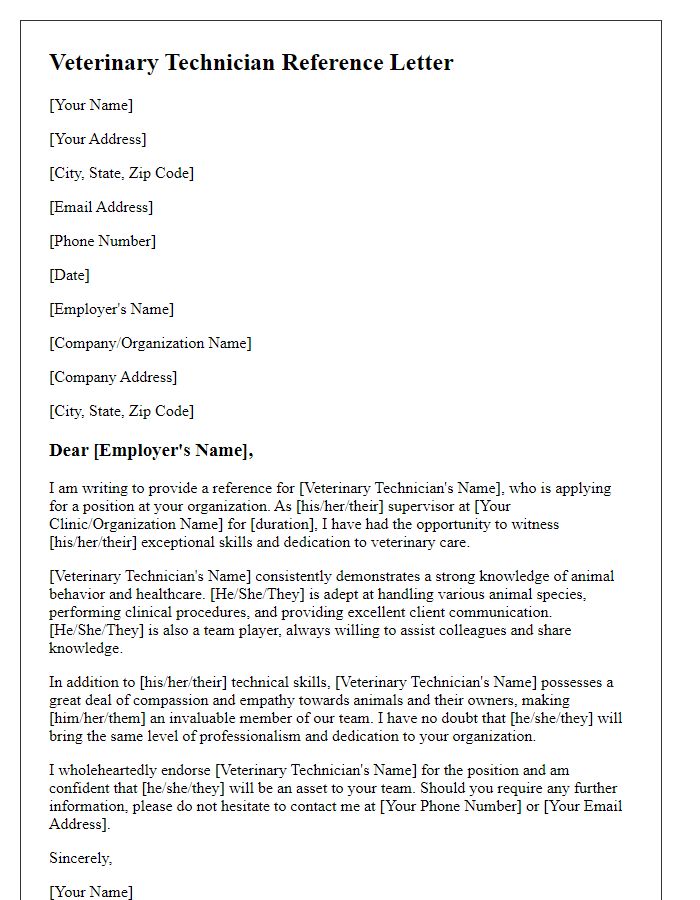

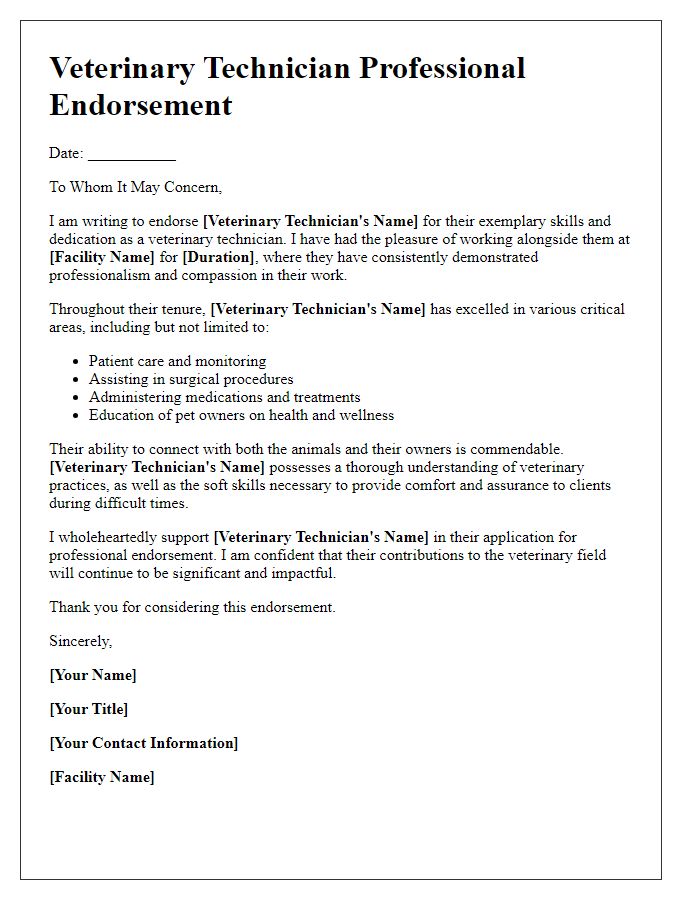
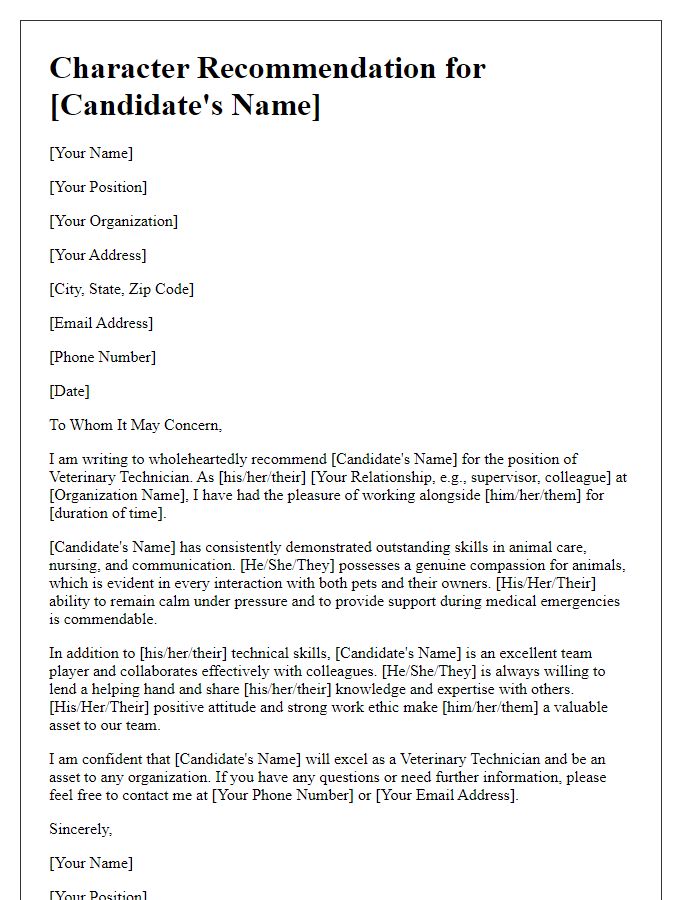
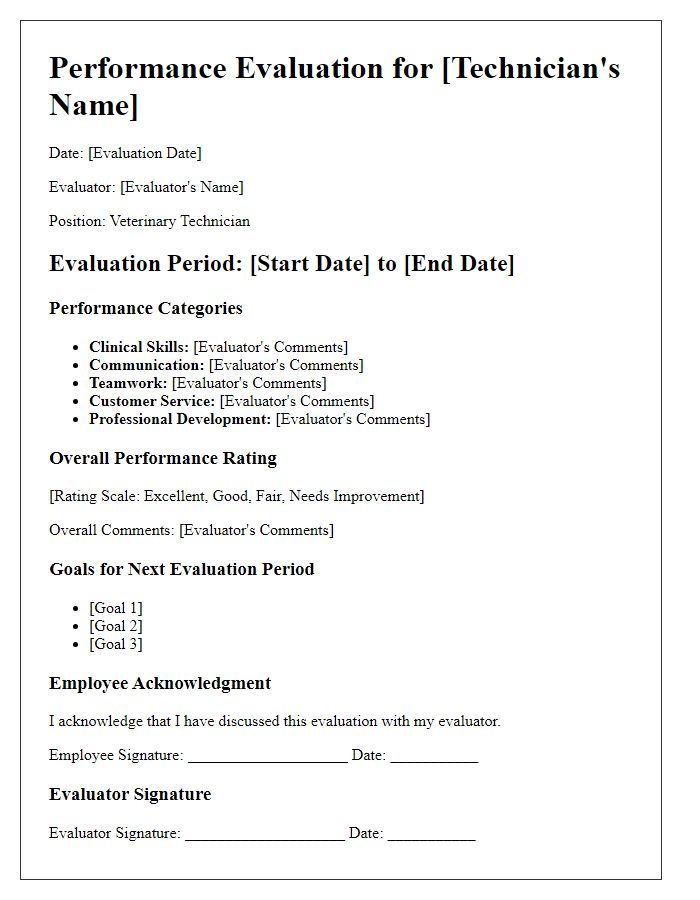
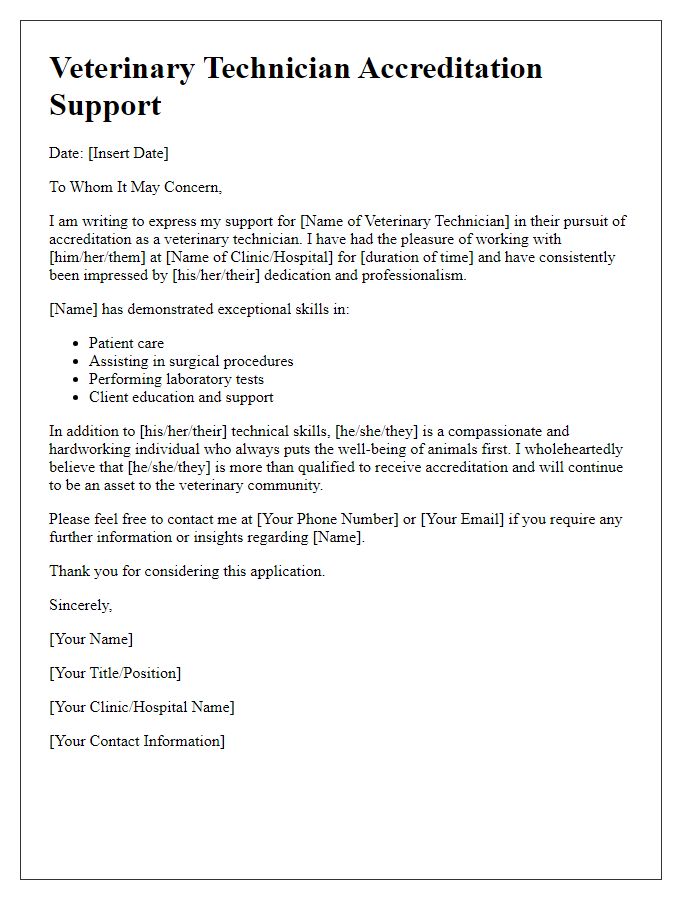
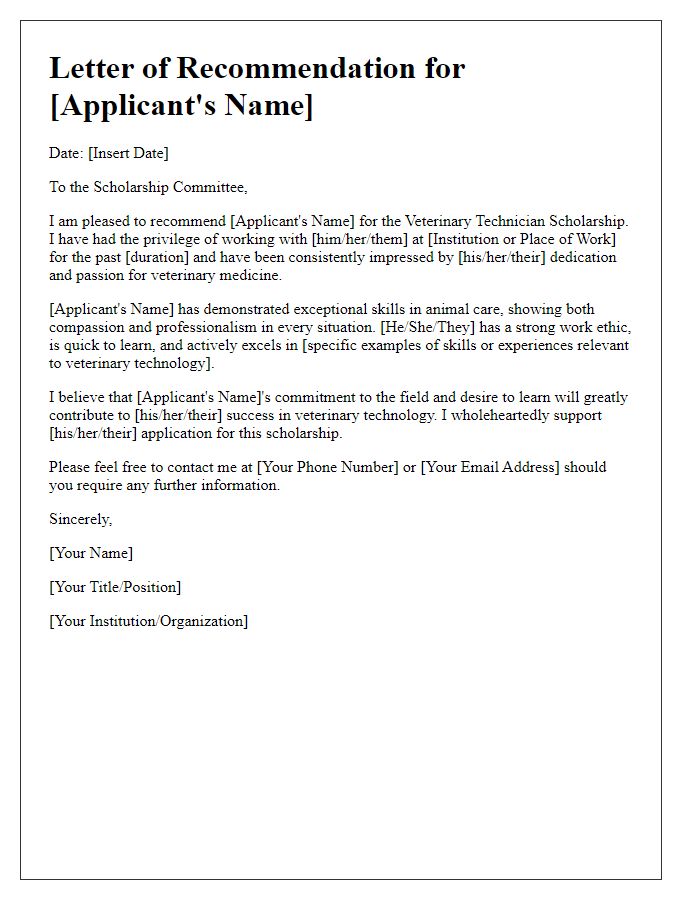
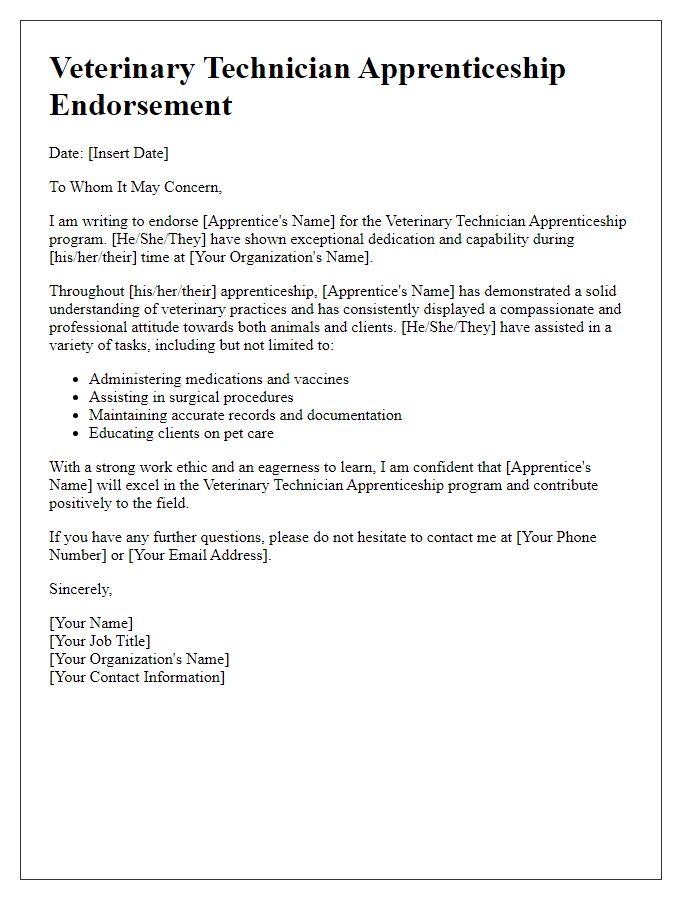
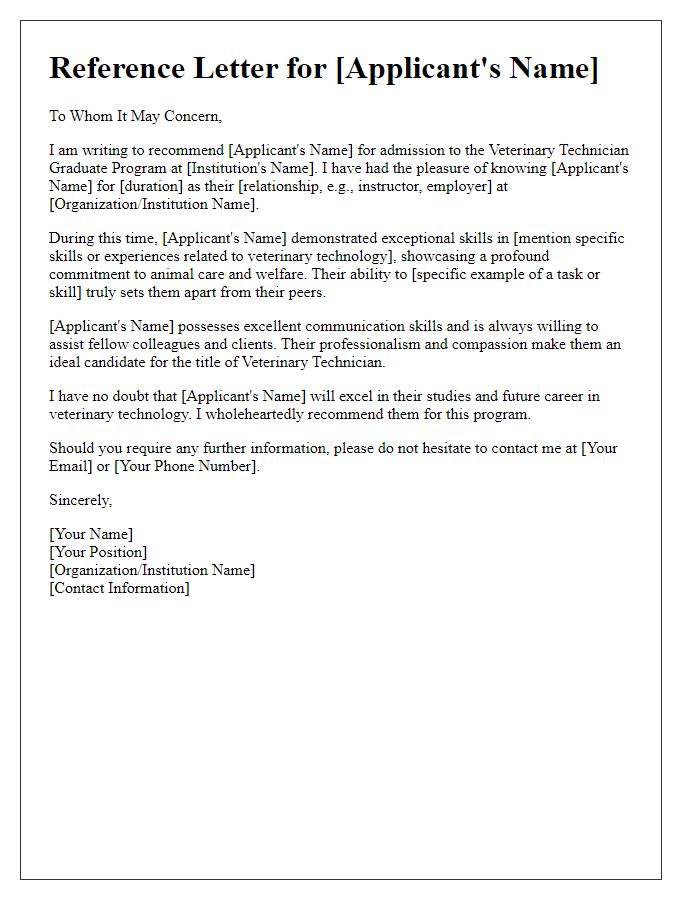
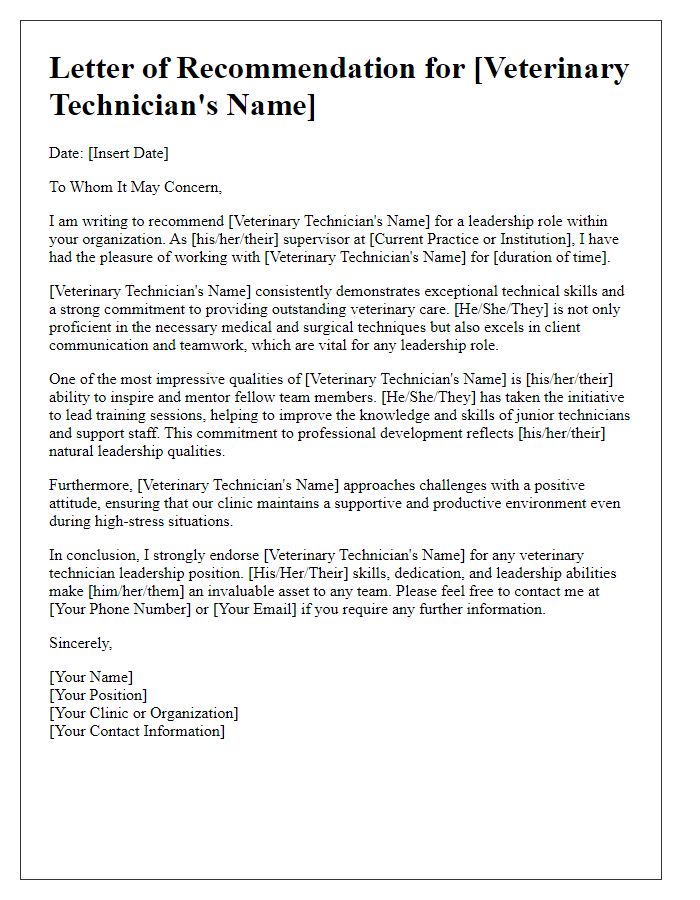
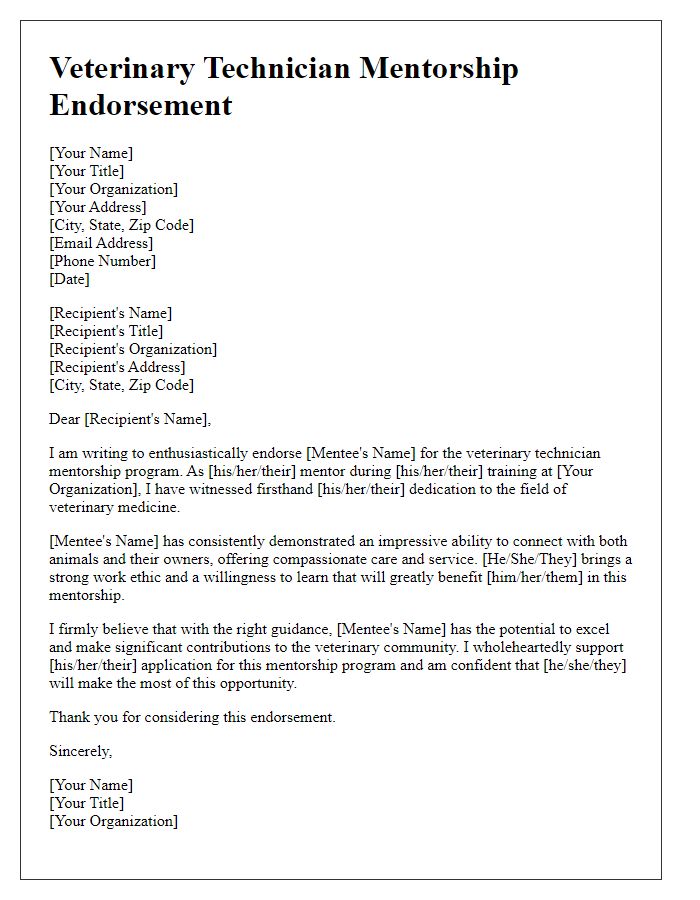


Comments